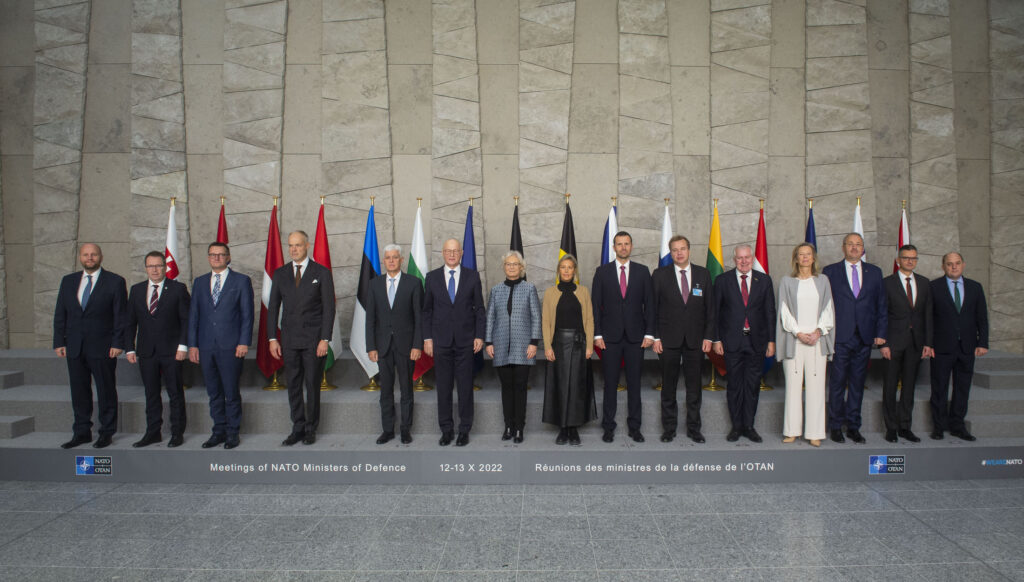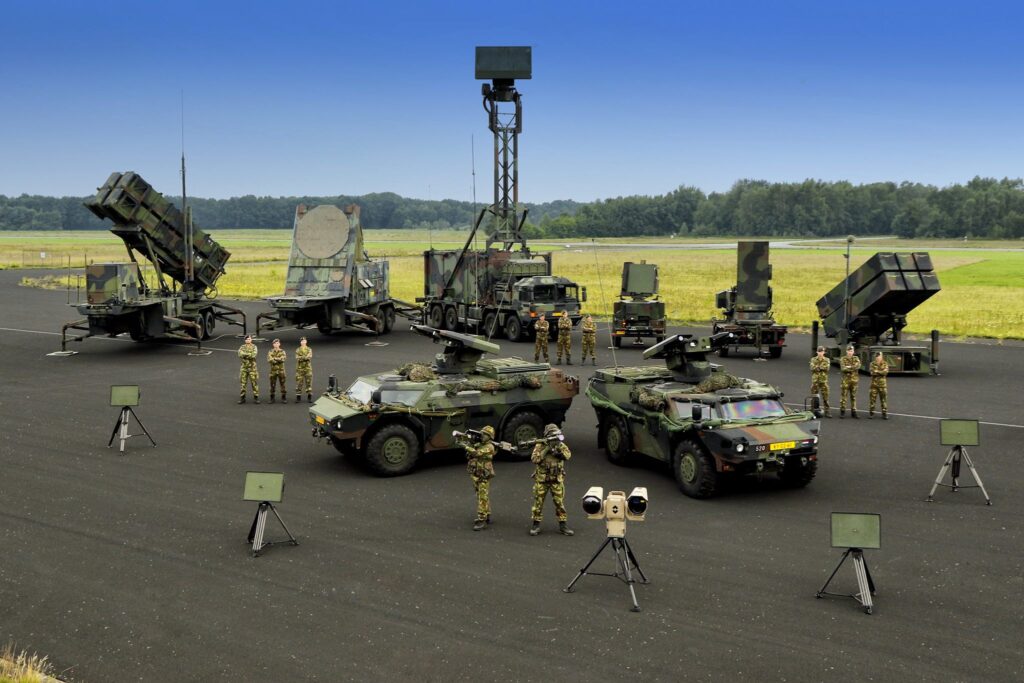On 13 October, at the meeting of NATO defence ministers, the Estonian defence minister, Hanno Pevkur, signed the European Sky Shield Initiative, initiated by Germany; the goal of the initiative is to jointly promote and better integrate air defence with NATO allies.
The initiative, proposed by Germany, was also taken up by Belgium, Bulgaria, the Czech Republic, Hungary, Latvia, Lithuania, the Netherlands, Norway, Slovakia, Slovenia, Romania and the United Kingdom.
It aims to create a European air and missile defence system through the common procurement of equipment by European nations, which will strengthen NATO’s integrated air and missile defence.
According to NATO, the initiative will allow participating nations to jointly develop an air defence system using interoperable, off-the-shelf solutions.

Quickly implement the eastern flank defences
“The signing of the letter of intent provides a platform for further possible joint activities, such as joint procurements and the sharing of maintenance costs,” the Estonian defence minister, Hanno Pevkur, said in a statement.
In Brussels, the defence ministers also discussed the current status of the implementation of the decisions agreed upon at the previous NATO summit in Madrid.
“From Estonia’s point of view, it is important that the decisions taken in Madrid to strengthen the defence of NATO’s eastern flank are quickly implemented. Our British and other allies are and will remain in Estonia, and work continues shaping their contribution to the creation of the structure of our division,” said Pevkur.
The defence ministers also discussed the protection of critical infrastructure and strengthening the resilience of infrastructure due to the sabotaging of the Nord Stream pipeline.
“Estonia has started checking the connections between Estonia and Finland, and looking to the future, our desire is to deepen the exchange of information with NATO allies in order to further strengthen the monitoring and security of the submarine and energy infrastructure of NATO countries,” Pevkur added.

